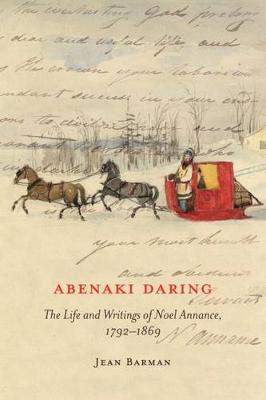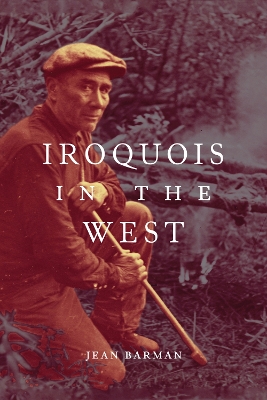McGill-Queen's Native and Northern
2 total works
An Abenaki born in St Francis, Quebec, Noel Annance (1792-1869), by virtue of two of his great-grandparents having been early white captives, attended Dartmouth College in New Hampshire. Determined to apply his privileged education, he was caught between two ways of being, neither of which accepted him among their numbers. Despite outstanding service as an officer in the War of 1812, Annance was too Indigenous to be allowed to succeed in the far west fur trade, and too schooled in outsiders' ways to be accepted by those in charge on returning home. Annance did not crumple, but all his life dared the promise of literacy on his own behalf and on that of Indigenous peoples more generally. His doing so is tracked through his writings to government officials and others, some of which are reproduced in this volume. Annance's life makes visible how the exclusionary policies towards Indigenous peoples, generally considered to have originated with the Indian Act of 1876, were being put in place upwards to half a century earlier. On account of his literacy, Annance's story can be told.
Recounting a life marked equally by success and failure, and by perseverance, Abenaki Daring speaks to similar barriers that to this day impede many educated Indigenous persons from realizing their life goals. To dare is no less essential than it was for Noel Annance.
Recounting a life marked equally by success and failure, and by perseverance, Abenaki Daring speaks to similar barriers that to this day impede many educated Indigenous persons from realizing their life goals. To dare is no less essential than it was for Noel Annance.
Two centuries ago, many hundreds of Iroquois - principally from what is now Kahnawa:ke - left home without leaving behind their ways of life. Recruited to man the large canoes that transported trade goods and animal pelts from and to Montreal, some Iroquois soon returned, while others were enticed ever further west by the rapidly expanding fur trade. Recounting stories of Indigenous self-determination and self-sufficiency, Iroquois in the West tracks four clusters of travellers across time, place, and generations: a band that settled in Montana, another ranging across the American West, others opting for British Columbia and the Pacific Northwest, and a group in Alberta who were evicted when their longtime home became Jasper National Park. Reclaiming slivers of Iroquois knowledge, anecdotes, and memories from the shadows of the past, Jean Barman draws on sources that range from descendants' recollections to fur-trade and government records to travellers' accounts. What becomes clear is that, no matter the places or the circumstances, the Iroquois never abandoned their senses of self. Opening up new ways of thinking about Indigenous peoples through time, Iroquois in the West shares the fascinating adventures of a people who have waited over two hundred years to be heard.

